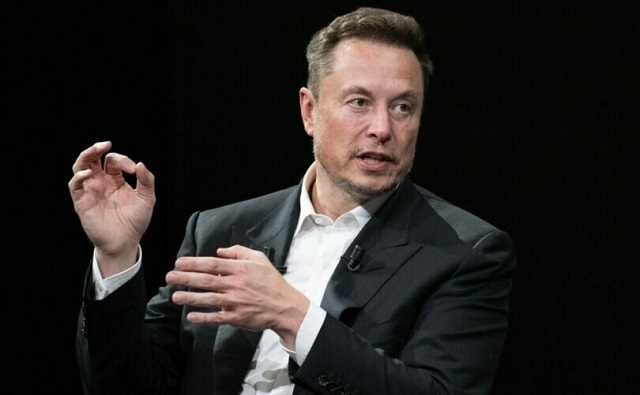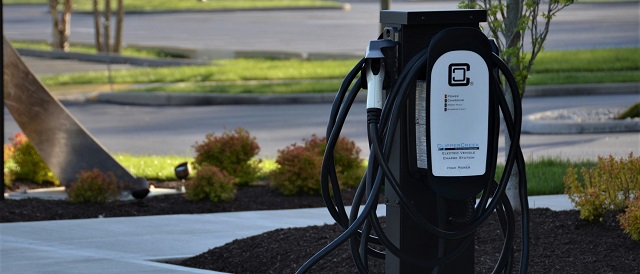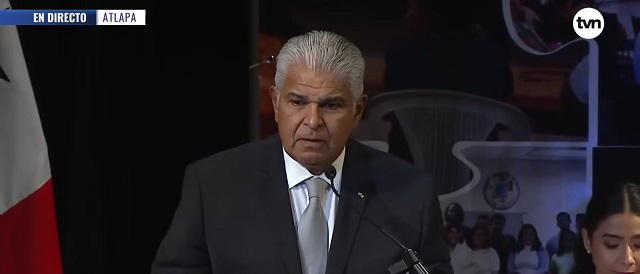Business
Elon Musk says X will disobey Brazil court order to censor accounts, calls on judge to be impeached

Elon Musk, Frederic Legrand – COMEO/Shutterstock
From LifeSiteNews
Elon Musk stated that his social media platform will likely be forced to shut down operations in Brazil as a result of non-compliance with the court order, but argued that ‘principles matter more than profit.’
Elon Musk has pushed back on demands made in a Brazilian court order to censor certain accounts and called for the impeachment of a leading Supreme Court judge.
On Saturday, April 6, X (formerly known as Twitter) announced that it “has been forced by court decisions to block certain popular accounts in Brazil” under the threat of daily fines if the company fails to comply.
Shortly after the announcement, X owner Elon Musk said that the company would resist these demands, even if it had to shut down its operations in Brazil.
“We are lifting all restrictions,” the billionaire wrote. “This judge has applied massive fines, threatened to arrest our employees, and cut off access to 𝕏 in Brazil.”
“As a result, we will probably lose all revenue in Brazil and have to shut down our office there. But principles matter more than profit.”
In another post on X, Musk announced that his social media platform would publish the demands made by Supreme Court judge and head of Brazil’s Superior Electoral Court Alexandre de Moraes. Musk also called for de Moraes to be impeached and referred to him as “Brazil’s Darth Vader.”
“Coming shortly, 𝕏 will publish everything demanded by @Alexandre [de Moraes] and how those requests violate Brazilian law. This judge has brazenly and repeatedly betrayed the constitution and people of Brazil. He should resign or be impeached. Shame @Alexandre, shame.”
— Te𝕏asLindsay™ (@TexasLindsay_) April 7, 2024
A few days prior, journalist Michael Shellenberger published the “Twitter Files Brazil,” which showed how the Deep State, led by de Moraes, had interfered in the 2022 presidential election by pressuring social media platforms to ban accounts that supported sitting president Jair Bolsonaro or questioned the electoral systems.
READ: New ‘Twitter Files’ show how Brazil’s deep state interfered in the 2022 presidential election
Shellenberger wrote:
On March 30, 2022, the day after de Moraes took office as president of the TSE, the TSE mandated Twitter to, within a week and under the threat of a daily fine of 50,000 BRL (US$ 10,000), supply data on the monthly trend statistics for the hashtags #VotoImpressoNAO (“PrinteVoteNo”) and #VotoDemocraticoAuditavel (“DemocraticAuditableVote”).
In 2022, the court coerced Twitter into censoring several accounts, including two elected House members, for allegedly spreading “disinformation” under the threat of heavy fines. Twitter initially pushed back on these requests and appealed the orders but ended up complying with some of the requests due to the pressure of the heavy penalties.
Under Musk’s leadership, the social media platform appears to reject the censorship demands made by de Moraes and risk the shutdown of the company in Brazil.
“At any moment, Brazil’s Supreme Court could shut off all access to X/Twitter for the people of Brazil,” Shellenberger wrote on April 7 while reporting from Brazil. “It is not an exaggeration to say that Brazil is on the brink of dictatorship at the hands of a totalitarian Supreme Court Justice named Alexandre de Moraes.”
“President Lula da Silva is participating in the push toward totalitarianism,” he added. “Since taking office, Lula has massively increased government funding of the mainstream news media, most of which are encouraging increased censorship.”
In response to Musk’s announcement to disobey the court order, Brazil’s Attorney General Jorge Messias demanded “urgent regulations” of social media platforms. According to the Financial Times, Messias said, “It is urgent to regulate social networks.”
“We cannot live in a society in which billionaires domiciled abroad have control of social networks and put themselves in a position to violate the rule of law, failing to comply with court orders and threatening our authorities,” he added.
Musk called on users in Brazil to download and use a VPN (virtual private network) to be able to use the social media platform, should the government restrict access to X.
Automotive
Red States Sue California and the Biden Administration to Halt Electric Truck Mandates

From Heartland Daily News
By Nick Pope
“California and an unaccountable EPA are trying to transform our national trucking industry and supply chain infrastructure. This effort—coming at a time of heightened inflation and with an already-strained electrical grid—will devastate the trucking and logistics industry, raise prices for customers, and impact untold number of jobs across Nebraska and the country”
Large coalitions of red states are suing regulators in Washington, D.C., and California over rules designed to effectively require increases in electric vehicle (EV) adoption.
Nebraska is leading a 24-state coalition in a lawsuit against the Environmental Protection Agency’s (EPA) recently-finalized emissions standards for heavy-duty vehicles in the U.S. Court of Appeals for the D.C. Circuit, and a 17-state coalition suing the state of California in the U.S. District Court for the Eastern District of California over its Advanced Clean Fleet rules. Both regulations would increase the number of heavy-duty EVs on the road, a development that could cause serious disruptions and cost increases across the U.S. economy, as supply chain and trucking sector experts have previously told the Daily Caller News Foundation.
“California and an unaccountable EPA are trying to transform our national trucking industry and supply chain infrastructure. This effort—coming at a time of heightened inflation and with an already-strained electrical grid—will devastate the trucking and logistics industry, raise prices for customers, and impact untold number of jobs across Nebraska and the country,” Republican Nebraska Attorney General Mike Hilgers said in a statement. “Neither California nor the EPA has the constitutional power to dictate these nationwide rules to Americans. I am proud to lead our efforts to stop these unconstitutional attempts to remake our economy and am grateful to our sister states for joining our coalitions.”
(RELATED: New Analysis Shows Just How Bad Electric Trucks Are For Business)
While specifics vary depending on the type of heavy-duty vehicle, EPA’s emissions standards will effectively mandate that EVs make up 60% of new urban delivery trucks and 25% of long-haul tractors sold by 2032, according to The Wall Street Journal. The agency has also pushed aggressive emissions standards for light- and medium-duty vehicles that will similarly force an increase in EVs’ share of new car sales over the next decade.
California’s Advanced Clean Fleet rules, meanwhile, will require that 100% of trucks sold in the state will be zero-emissions models starting in 2036, according to the California Air Resources Board (CARB). While not federal, the California rules are of importance to other states because there are numerous other states who follow California’s emissions standards, which can be tighter than those required by the EPA and other federal agencies.
Critics fear that this dynamic will effectively enable California to set national policies and nudge manufacturers in the direction of EVs at a greater rate and scale than the Biden administration is pursuing.
Trucking industry and supply chain experts have previously told the DCNF that both regulations threaten to cause serious problems for the country’s supply chains and wider economy given that the technology for electric and zero-emissions trucks is simply not yet ready to be mandated at scale, among other issues.
Neither CARB nor the EPA responded immediately to requests for comment.
Nick Pope is a contributor to The Daily Caller News Service.
Originally published by The Daily Caller. Republished with permission.
Automotive
New Analysis Shows Just How Bad Electric Trucks Are For Business

 From the Daily Caller News Foundation
From the Daily Caller News Foundation
By WILL KESSLER
Converting America’s medium- and heavy-duty trucks to electric vehicles (EV) in accordance with goals from the Biden administration would add massive costs to commercial trucking, according to a new analysis released Wednesday.
The cost to switch over to light-duty EVs like a transit van would equate to a 5% increase in costs per year while switching over medium- and heavy-duty trucks would add up to 114% in costs per year to already struggling businesses, according to a report from transportation and logistics company Ryder Systems. The Biden administration, in an effort to facilitate a transition to EVs, finalized new emission standards in March that would require a huge number of heavy-duty vehicles to be electric or zero-emission by 2032 and has created a plan to roll out charging infrastructure across the country.
“There are specific applications where EV adoption makes sense today, but the use cases are still limited,” Karen Jones, executive vice president at Ryder, said in an accompanying press release. “Yet we’re facing regulations aimed at accelerating broader EV adoption when the technology and infrastructure are still developing. Until the gap in TCT for heavier-duty vehicles is narrowed or closed, we cannot expect many companies to make the transition, and, if required to convert in today’s market, we face more supply chain disruptions, transportation cost increases, and additional inflationary pressure.”
Due to the increase in costs for businesses, the potential inflationary impact on the entire economy per year is between 0.5% and 1%, according to the report. Inflation is already elevated, measuring 3.5% year-over-year in March, far from the Federal Reserve’s 2% target.
Increased expense projections differ by state, with class 8 heavy-duty trucks costing 94% more per year in California compared to traditional trucks, due largely to a 501% increase in equipment costs, while cost savings on fuel only amounted to 52%. In Georgia, costs would be 114% higher due to higher equipment costs, labor costs, a smaller payload capacity and more.
The EPA also recently finalized rules mandating that 67% of all light-duty vehicles sold after 2032 be electric or hybrid. Around $1 billion from the Inflation Reduction Act has already been designated to be used by subnational governments in the U.S. to replace some heavy-duty vehicles with EVs, like delivery trucks or school buses.
The Biden administration has also had trouble expanding EV charging infrastructure across the country, despite allotting $7.5 billion for chargers in 2021. Current charging infrastructure frequently has issues operating properly, adding to fears of “range anxiety,” where EV owners worry they will become stranded without a charger.
-

 National2 days ago
National2 days agoDespite claims of 215 ‘unmarked graves,’ no bodies have been found at Canadian residential school
-

 Brownstone Institute2 days ago
Brownstone Institute2 days agoThe WHO’s Proposed Pandemic Agreements Worsen Public Health
-

 John Stossel1 day ago
John Stossel1 day agoProtecting Free Speech: The Early Warning Signs From Around The World
-

 armed forces1 day ago
armed forces1 day agoTrudeau government has spent $10 million promoting DEI in the military as recruitment flounders
-

 Health2 days ago
Health2 days agoTHE WPATH TAPES: Behind-The-Scenes Recordings Reveal What Top Gender Doctors Really Think About Sex Change Procedures
-

 COVID-192 days ago
COVID-192 days agoTrudeau’s public health agency recommends another experimental COVID booster
-

 illegal immigration2 days ago
illegal immigration2 days agoPanama’s Incoming President Wants To Shut Down His Country’s Most Treacherous Route For Migrants — But Will It Work?
-

 Addictions2 days ago
Addictions2 days agoPoilievre attacks decriminalization of hard drugs with Safe Hospitals Act






